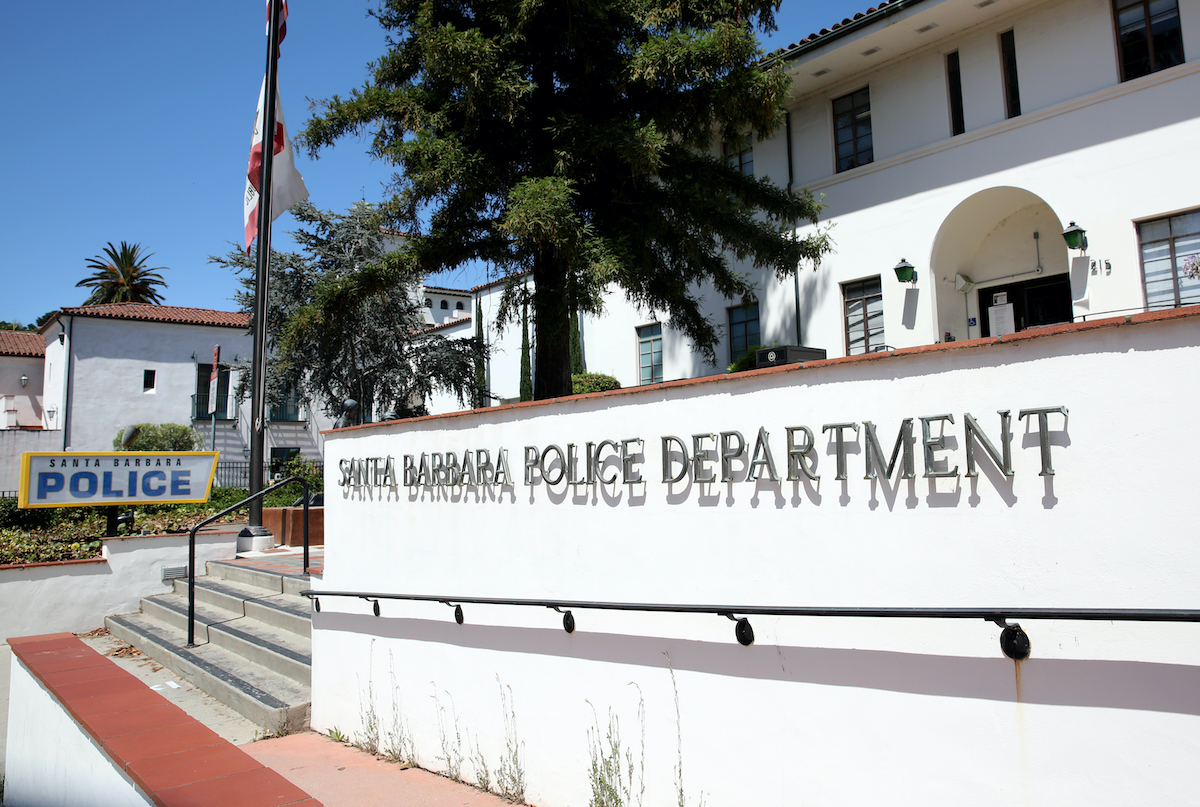Making History, Santa Barbara Adopts New System of Civilian Police Oversight
Councilmembers Hail ‘Momentous’ Unanimous Vote; Last-Minute Drama Clouds Meeting

In what can only be described as a watershed moment for Santa Barbara, the City Council voted unanimously to adopt a new system of civilian oversight for its police department.
The decision came amid an ongoing nationwide reckoning over police accountability sparked by the murder of George Floyd in the spring of 2020 and after two years of intense local debate around the need for a citizen-led method of checks and balances.
Councilmember Meagan Harmon, one of the loudest and most consistent voices on the dais on the issue, called the vote “truly momentous.” “We have created a framework that is the single most significant step toward meaningful civilian oversight in our city’s history,” she said. “That is a big, big deal.”
Harmon recognized the many years of community advocacy that led to the moment, as well as the more recent efforts by city staff; the Community Formation Commission (CFC) that spent hundreds of hours researching, talking through, and hammering out the agreed-upon framework; and participating members of the police department. “It was no simple matter to get here,” she said.
Newly appointed Police Chief Kelly Gordon said the department “believes in the importance of strengthening community oversight.” She emphasized, however, that exceptionally high standards of professionalism already exist across the agency’s ranks. “The men and women serving in the Santa Barbara Police Department are phenomenal public servants and first responders,” she said, noting her observations come with 27 years of policing experience.
The ordinance adopted by the council endows the city’s existing Police and Fire Commission with new oversight authority, including receiving regular reports from the Police Department on how many and what types of complaints have been made against its officers, both internally and by the public. The commission will also hear what disciplinary actions have been meted out.
The commission will review and discuss individual investigations in open session with the police chief (once those investigations are disclosable under the California Public Records Act), and the chief will also be required to make presentations to the commission regarding any officer-involved shootings. An “independent police monitor” within the city administrator’s office will supervise the entire complaint process from submission through investigation, produce their own reports for the council, and conduct ongoing analysis of any complaint trends.
Five new members of the Police and Fire Commission will be chosen by the council. Applications are open through Thursday, November 10, at 5 p.m. While some members of the formation commission had suggested excluding any former law enforcement officers and firefighters from applying, the council overrode the recommendation.
“I would like to see the perspective and lived experiences and expertise of former law enforcement represented,” said councilmember Michael Jordan. “I would welcome their participation and knowledge.”
In keeping with the moments of controversy and drama that have punctuated the last two years of debate, Sgt. Eric Beecher, president of the police union, accused the formation commission of acting in a “shady” manner when it submitted a handful of changes to the ordinance later in the process.
Councilmembers and the city attorney’s office pushed back on the suggestion that any underhandedness had taken place, emphasizing all public noticing and legal protocols were followed to the letter. “For some of you to call out our credibility, it’s just disrespectful,” said Councilmember Oscar Gutierrez. “That was really rude, and I don’t appreciate it.”
Councilmember Kristen Sneddon also bristled. “Staff was not shady, our law department was not shady, our police officers are not shady, and the community members who stepped forward to serve and volunteer on the formation commission are not shady,” she said.
When the five new members of the commission are chosen and finally get down to work, “It’s just going to confirm what we already know,” Sneddon predicted. “That we already have an incredibly progressive police department.”
Councilmember Alejandra Gutierrez said while the moment was worth celebrating, she couldn’t help but dwell on a sobering thought, a sentiment she said she often hears from constituents: “There is still not trust in law enforcement.”
Support the Santa Barbara Independent through a long-term or a single contribution.



